Has Rwanda Scored an Own Goal by Sponsoring Arsenal FC?
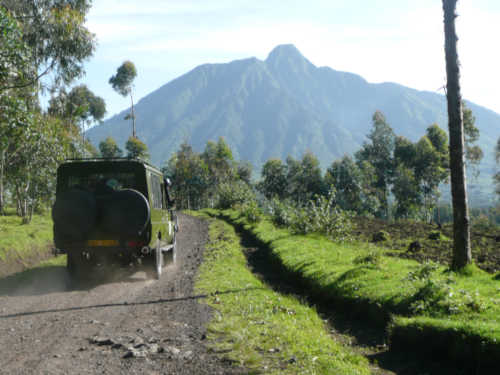
Interviewed by John Humphreys on the BBC Today programme on 29th May, the CEO of the Rwanda Economic Development Board (EDB), Clare Akamanzi, made a spirited defence of Rwanda’s sponsorship of Arsenal. Controversial?........Definitely. Effective marketing?.......To be considered. Positive for Rwanda’s image as a tourism destination?........Let’s see.
Economic Background: No Looking Back
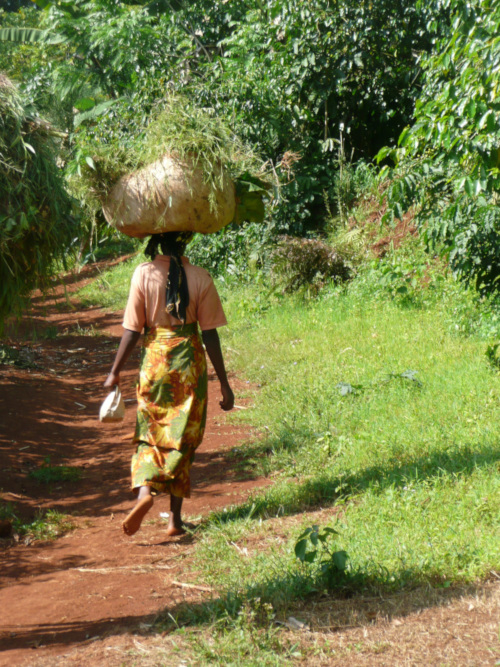
Rwanda is an amazingly resilient and dynamic country, whose determination to forge a new future after the most horrific legacy of the 1994 genocide is impressive and an example to developing economies worldwide. Its post-genocide economic performance is nothing short of remarkable. Investment in agriculture, tourism, a shiny new convention centre, and development of fibre-optic broadband throughout the country, are testament to a strategic commitment to grow the Rwandan economy; and a reduction in people living below the poverty line (from c. 57% in 2006 to c. 39% in 2015*), sustained economic growth (between 6-8% annually since 2003*), and improvements in life expectancy and literacy all endorse Rwanda’s progress towards improved economic and social development.
As one of the first countries in the world to ban plastic bags, Rwanda also demonstrates a pioneering spirit, which shows it is unafraid to take both practical and symbolic steps, not just to protect its exceptional natural environment, but also to let the world know that, while it may be small, it is a country to be reckoned with.
The flip-side of this political stability underpinning economic growth has been what some commentators describe as ‘compromising on democracy’ and charges of human rights violations. However, economic growth and education are generally more conducive to accelerating democracy than poverty and inequitable accumulation of resources. So the hope must be that, as Rwanda prospers, democratic accountability and respect for human rights become integral to Rwanda’s successful development.
Tourism as a Major Economic Driver
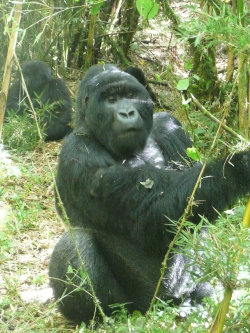 In common with many countries in the immediate aftermath of conflict, the notion of their ever developing as a tourism destination seems far-fetched to many people. However, it was clear, when I worked in Rwanda on the development of the Congo-Nile Trail in the early days of Rwanda’s post-genocide economic development strategy, that tourism could become a significant economic driver for Rwanda and the government bravely committed to developing the sector.
In common with many countries in the immediate aftermath of conflict, the notion of their ever developing as a tourism destination seems far-fetched to many people. However, it was clear, when I worked in Rwanda on the development of the Congo-Nile Trail in the early days of Rwanda’s post-genocide economic development strategy, that tourism could become a significant economic driver for Rwanda and the government bravely committed to developing the sector.
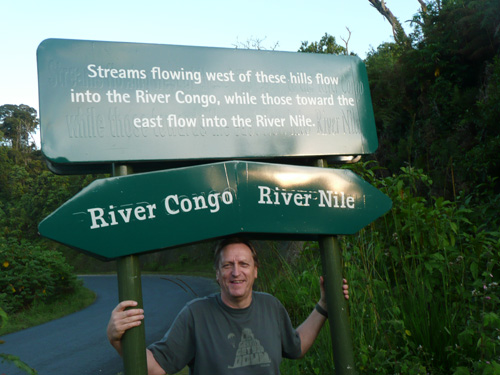
The main focus was to diversify tourism products and markets, to reduce Rwanda’s disproportionate dependence on the short-stay gorilla-trekking market and create a more sustainable, long-term visitor economy, and to spread the benefits more widely throughout the country. Today, tourism is Rwanda's biggest foreign exchange earner. It has generated over 90,000 jobs to date and the national goal is to double tourism receipts from $404 million to $800 million by 2024**.
A Matter of Principle
So, this is the backdrop against which today’s marketing of Rwanda takes place: the memory of the 1994 genocide as possibly still the strongest association with the country; gradually growing awareness, albeit limited, of Rwanda as a tourism destination; and ever-present charges of human rights violations in the media.
Consequently, these all need to be taken into account when planning any international communications campaign, especially to attract visitors. Otherwise, there is a risk that the right message targets the wrong audience or is delivered through an inappropriate channel, resulting in its getting lost, failing to achieve credibility, or provoking unhelpful debate.
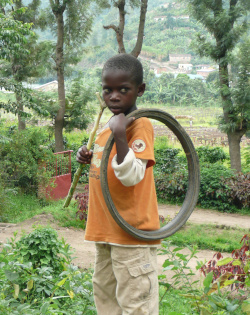 Criticism frequently abounds when developing countries spend marketing dollars trying to attract visitors, particularly when the country is in receipt of foreign aid. But, such scepticism is ill-informed prejudice, not rational economic thinking. Any country that is serious about developing its visitor economy needs to invest in marketing itself on the world stage. The world is just too competitive a place to stand idly by and expect people to visit without any effort invested to bring the destination to people’s notice.
Criticism frequently abounds when developing countries spend marketing dollars trying to attract visitors, particularly when the country is in receipt of foreign aid. But, such scepticism is ill-informed prejudice, not rational economic thinking. Any country that is serious about developing its visitor economy needs to invest in marketing itself on the world stage. The world is just too competitive a place to stand idly by and expect people to visit without any effort invested to bring the destination to people’s notice.
Consequently, any debate about Rwanda’s sponsorship of Arsenal should be about its marketing efficacy, not about the basic principle of spending marketing dollars on destination promotion. This principle is clearly articulated by Ms. Akamanzi in a recent article in the Guardian.
So, How Effective Is Rwanda’s Sponsorship of Arsenal FC?
Time will tell. In the meantime, it is worth considering this question from three angles: marketing impact, cost-effectiveness, and public sentiment.
Firstly, marketing impact: Measuring the impact of sports sponsorship is notoriously difficult. It is usually a top-up tactic, which supplements other marketing activities, rather than a stand-alone promotional tactic. Arguably, without such back-up from a wider market presence, it says little and risks being wasted. There is no opportunity to convey any message about a country on a football strip, as space permits little more than the country name (in this case “Visit Rwanda”). 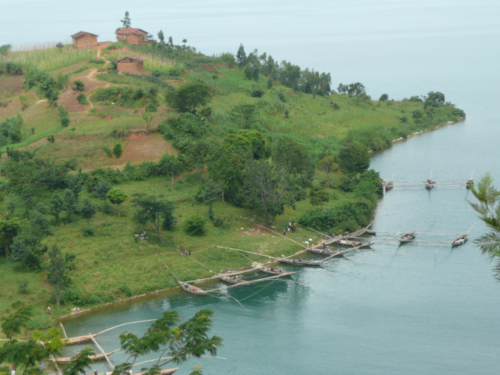

At best, this might create awareness of the country. But, given the strongest associations with Rwanda appear to be predominantly negative (genocide and human rights violation charges), which play into the unfortunately widespread and one-sided western perception of the African narrative of corruption, disease, famine and violence, merely raising awareness of the country without further qualification risks reinforcing these negatives and offers little opportunity to redress them. There is no room on a shirt sleeve to embellish the message or explain why anyone should visit Rwanda. Therefore, the opportunity to enlighten the audience is lost and the risk of reinforcing prejudices increased.
Secondly, cost-effectiveness: Given limited awareness of Rwanda’s tourism appeals in its main markets and the competitive environment in which it is seeking to attract visitors, not to mention the perennial millstone of the erroneously negative, media-driven, African narrative in the west, there is a crying need to distinguish Rwanda from its African neighbours and competitors and to explain why people should visit Rwanda.
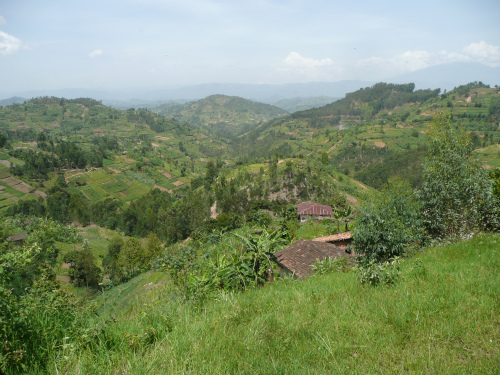 This “land of a thousand hills” is a stunning country, rich in culture, wildlife, flora, and opportunities for outdoor activities, such as hiking, cycling and kayaking. But people need to be made aware of this. Otherwise, Rwanda’s chances of persuading them Rwanda is worth visiting will be lost.
This “land of a thousand hills” is a stunning country, rich in culture, wildlife, flora, and opportunities for outdoor activities, such as hiking, cycling and kayaking. But people need to be made aware of this. Otherwise, Rwanda’s chances of persuading them Rwanda is worth visiting will be lost. By spending on strip sponsorship (up to £30 million according to media reports; although the Economic Development Board denied this, without clarifying the amount) there is a significant opportunity cost in terms of other, more focused marketing, which could deliver more compelling messages and reasons to visit to a more targeted and more receptive audience – such as PR, targeted advertising, social media, hosting familiarisation trips for tour operators, travel journalists and bloggers et al.
Arguably this could be a much more efficacious approach which might deliver a significantly better return on marketing investment than the more diffuse and message-free zone of football strip sponsorship.
Thirdly, public sentiment and public relations impact: Public sentiment matters in any potential market, as it determines how receptive the market might be to marketing messages, in this case potential visitors to Rwanda. It is not surprising, in a country that donates £60m in aid to Rwanda, that a media storm would be stirred up by the beneficiary country (Rwanda) spending up to half that aid amount on football strip sponsorship in the donor country (UK), regardless of the validity of such marketing investment.
This, plus the refusal to confirm the exact cost of this sponsorship, was a recipe for a PR disaster, which should have been foreseen and avoided. Sadly, any benefit that might accrue from this sponsorship is likely to be outweighed by the subsequent negative publicity and reinforcement of the wrong image of Rwanda.
Conclusion
They say all publicity is good publicity. In this case, I’m not so sure. The best that can probably be said is that awareness of Rwanda has been raised. It is conceivable this might introduce the notion of Rwanda as a tourism destination to a new audience. However, it seems more likely that the bulk of this awareness will be of the wrong things and not of Rwanda as a visitor destination. Chances are the ill-informed and negative western narrative for Africa in general and of Rwanda in particular has, unfortunately, been reinforced.
An opportunity has been lost, at considerable expense whatever the true cost of this sponsorship, to target receptive audiences, who might consider visiting Rwanda, with compelling messages. Strategically, this would seem a ‘no-brainer’, which would offer a significantly greater return on marketing investment.
That said, while there may be different views on the efficacy of this marketing investment in sponsoring Arsenal, the EDB is right to defend the principle of spending money, even aid money, to attract visitors. Tourism is Rwanda’s largest source of foreign exchange and they will not come if no-one tells them about Rwanda.
Some have criticised the widespread denunciation of this sponsorship deal in the British media as racist. This charge may perhaps justly be laid at the feet of those who insinuate the deal is purely down to Paul Kagame, Rwanda’s President, being an Arsenal fan, as this is an easy, if disingenuous, headline-grabbing claim to make. But few, if any, reporters have been sufficiently marketing-literate to assess its marketing efficacy. And that must surely be the test – whether it is likely to work and represents the best use of limited marketing resources. Objective analysis of marketing impact is sound commercial sense, in which there is no room for prejudice.
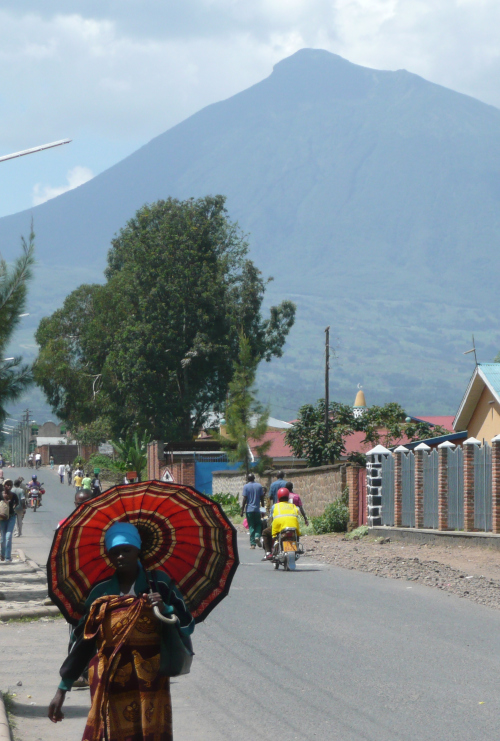 But there may be a glimmer of a silver lining. What Rwanda needs to do now is to strike while this iron is hot and capitalise on live, controversial publicity. Its current newsworthiness offers Rwanda an opportunity to turn a negative into a positive and tell the other side of the story – what it offers as a visitor destination. Recovery from this PR fallout will depend on how Rwanda reacts and how quickly. But this window of opportunity will be short. It would be a shame if the legacy of its Arsenal sponsorship caused Rwanda’s image to remain mired in controversy. Rwanda deserves far better.
But there may be a glimmer of a silver lining. What Rwanda needs to do now is to strike while this iron is hot and capitalise on live, controversial publicity. Its current newsworthiness offers Rwanda an opportunity to turn a negative into a positive and tell the other side of the story – what it offers as a visitor destination. Recovery from this PR fallout will depend on how Rwanda reacts and how quickly. But this window of opportunity will be short. It would be a shame if the legacy of its Arsenal sponsorship caused Rwanda’s image to remain mired in controversy. Rwanda deserves far better. *Source: CIA World Factbook
**Source: Rwanda Economic Development Board

